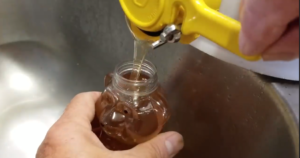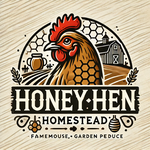
Bee Keeping And Honey Harvesting;
In the realm of off-grid living, sustainability and self-sufficiency reign supreme. From generating renewable energy to growing your own food, off-grid enthusiasts find innovative ways to reduce their environmental footprint while gaining independence from traditional systems. One such way to embrace sustainability is through beekeeping, a practice that not only supports the environment but also offers a sweet reward: honey.
The Buzz About Beekeeping
Beekeeping, also known as apiculture, has been an essential part of agriculture and homesteading for centuries. However, in the context of off-grid living, it takes on a new dimension. Here, beekeeping becomes a crucial element in a holistic approach to self-sufficiency.
Beekeeping Basics
Before delving into the sweet rewards of honey, let’s explore the basics of beekeeping:
- Hive Setup: Beekeepers typically use hives to house their bee colonies. These hives provide shelter and structure for the bees to build their combs and store honey.
- The Hive Residents: A beehive consists of thousands of bees, including the queen bee, worker bees, and drones. Each plays a unique role in the hive’s ecosystem.
- Pollination Power: Bees are nature’s pollinators. When they forage for nectar and pollen, they transfer pollen grains from one flower to another, facilitating the reproduction of plants. This vital role makes them essential for food production, making beekeeping an integral part of sustainable agriculture.
Honey: Liquid Gold of Off-Grid Living
Now, let’s dive into the sweet side of beekeeping—the production of honey. Honey is often referred to as “liquid gold,” and for a good reason.
The Honey-Making Process
Honey production is a remarkable process carried out by bees. Here’s how it happens:
- Foraging: Worker bees collect nectar from flowers using their proboscis (a straw-like tongue). They store this nectar in their honey stomachs.
- Nectar to Honey: The bees return to the hive and pass the nectar to other worker bees. These bees chew the nectar and transfer it to honeycomb cells.
- Dehydration: Once in the comb, the nectar’s moisture content is reduced through the collective effort of the bees. This drying process is crucial, as honey with lower moisture content is less prone to spoilage.
- Capping: When the honey is sufficiently dehydrated, the bees cap the cells with beeswax, sealing the honey inside.
- Harvesting: Beekeepers carefully extract the honeycomb frames from the hive, removing the wax cappings and collecting the liquid honey.
Health Benefits of Honey
Besides its delicious taste, honey offers several health benefits:
- Nutrient-Rich: Honey contains essential nutrients, including vitamins, minerals, and antioxidants, making it a valuable addition to your off-grid diet.
- Antibacterial Properties: Honey has natural antibacterial properties and can be used to soothe sore throats and minor wounds.
- Energy Boost: It’s a natural energy booster, providing a quick source of energy, making it ideal for off-grid living where physical work is often part of the daily routine.
Sustainability and Self-Sufficiency
Embracing beekeeping as part of your off-grid lifestyle brings numerous advantages:
- Pollination: Bees help pollinate your crops, leading to better yields in your garden or orchard.
- Honey Production: By harvesting your honey, you reduce your dependence on store-bought sweeteners, contributing to your self-sufficiency.
- Income Potential: If you produce surplus honey, you can sell it locally, creating a small income stream.
The Final Word
Beekeeping is more than just a hobby; it’s a sustainable practice that aligns perfectly with off-grid living values. From aiding in crop pollination to providing you with a natural sweetener, bees play a vital role in the journey to self-sufficiency. By becoming a beekeeper, you not only support your off-grid lifestyle but also contribute to the preservation of these essential pollinators.
In summary, beekeeping offers an incredible connection to nature, an abundant source of honey, and the satisfaction of knowing you’re actively participating in a sustainable and self-sufficient lifestyle.So, if you’re considering off-grid living or are already on that path, don’t overlook the opportunity to keep bees and savor the sweet rewards of sustainable living.
